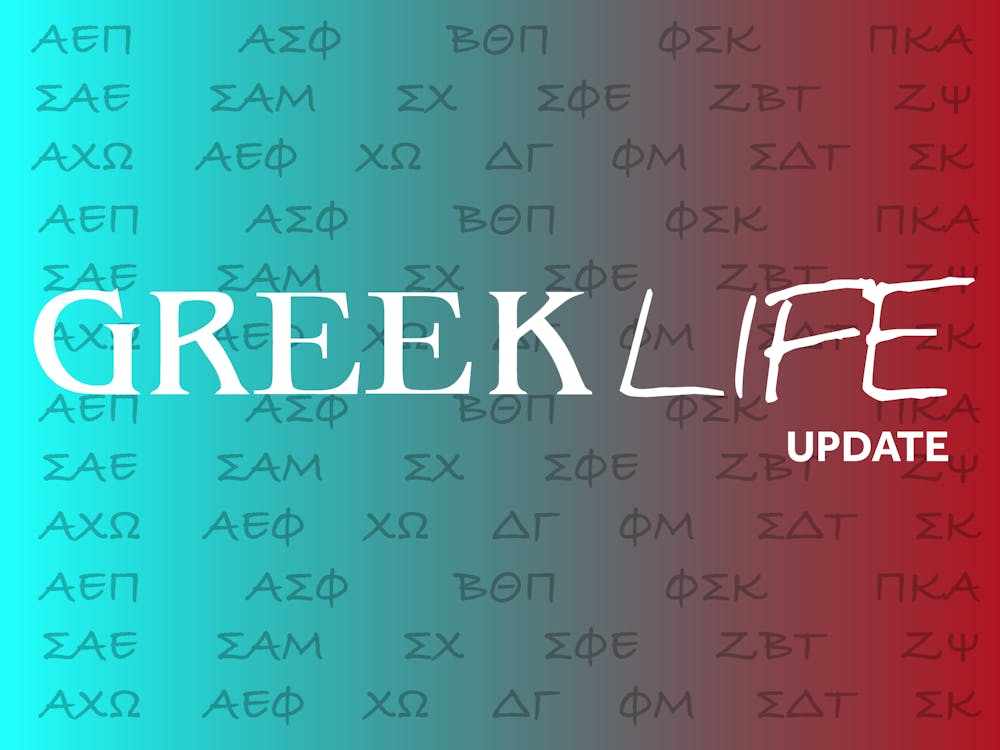Sophomore Stevie Early remembers feeling conflicted about joining social Greek life as early as her senior year of high school.
After Early committed to American University, her friends asked whether she planned to rush a sorority. Unsure, Early researched Greek life and found what she called a history of elitism and sexual assault compliance that turned her away from the idea.
“I felt like it didn’t really foster the community that I think the University should have,” Early said.
She said she would rather help create an environment that is inclusive to everyone, rather than joining a selective organization. Last summer, many students called for the abolishment of Greek life in response to the handling of sexual misconduct allegations.
Students involved in Greek life experienced higher rates of sexual assault than those who weren’t, according to a 2018 study published in the Journal of Interpersonal Violence. More than one in 10, or 13.5 percent, of Greek life participants were assaulted on campus, with those involved in Greek life “more likely to report having experienced” assault.
At AU, sororities such as Alpha Chi Omega have implemented methods of reform to address issues of assault. Some students are questioning if these reforms are effective in eliminating the risk.
“Sexual assault prevention is really important,” Early said. “However, I often find that those attempts are very shallow. They’re usually thought of as a reaction, not a prevention.”
In April, AU’s Alpha Chi Omega chapter hosted a panel centered around sexual assault prevention and awareness. Madison McCabe, the sorority’s vice president of philanthropy, said that she was pleased with the turnout of the four-person panel, with 135 students in attendance.
“What I really hope people took away was the inspiration to continue to make our campus community a better, safer place,” McCabe said.
Some students, such as freshman Parthav Easwar, are doubtful that Greek organizations can solve problems like assault, and instead view it as a wider issue of the University.
“There isn't a lot of accountability,” Easwar said. “I feel like the things that AU can do are fairly limited.”
Addressing sexual assault, especially on college campuses, is a multi-pronged issue, said Michelle Dagne, the coordinator for victim advocacy services at AU’s Health Promotion and Advocacy Center.
Dagne, whose primary responsibility is supporting student victims of assault, said that, among institutional changes, the conversation about rape culture needs to change to include the subject of power dynamics. On college campuses, power dynamics exist socially and academically, which are often exacerbated by Greek life. This, she said, plays a role in sexual assault culture.
Dagne also discussed the importance of accountability and taking responsibility, especially among men in fraternities.
Jeremy Hardy, a training and technical assistance manager for Men Can Stop Rape D.C., has experience in creating that type of community. He trains fraternity men to grow into the concept of “healthy masculinity,” which he said involves recognizing unhealthy masculine attitudes that can be harmful to the self or others, and calling out those behaviors in fellow men.
However, creating that community of accountability isn’t simple. Hardy said the nature of Greek life often allows negative aspects of masculinity to influence the behaviors of fraternity members, especially at fraternity parties.
McCabe acknowledges that these parties contribute to men assaulting women on campus, which she said was part of the reason why Alpha Chi Omega made the decision to formally cut all organizational ties with social fraternities.
“It's not that the sorority is pushing us to be involved in parties, it's just kind of the reality of what we get exposed to,” McCabe said. “And I think we have a really special opportunity to focus on what our sorority is all about: our philanthropy and our sisterhood.”





